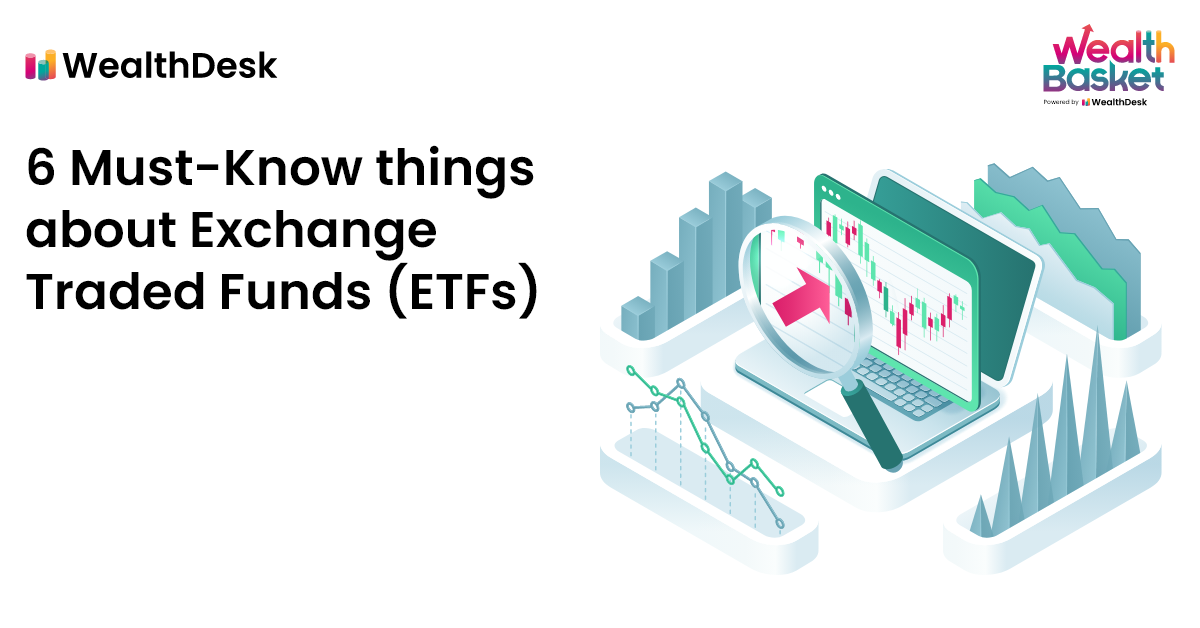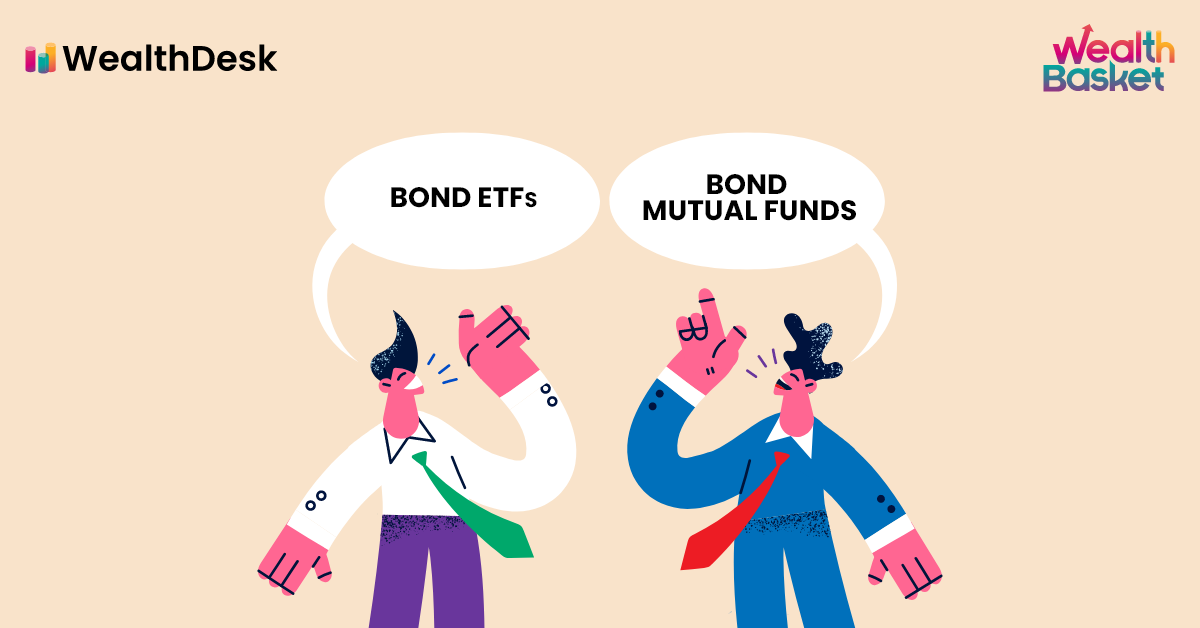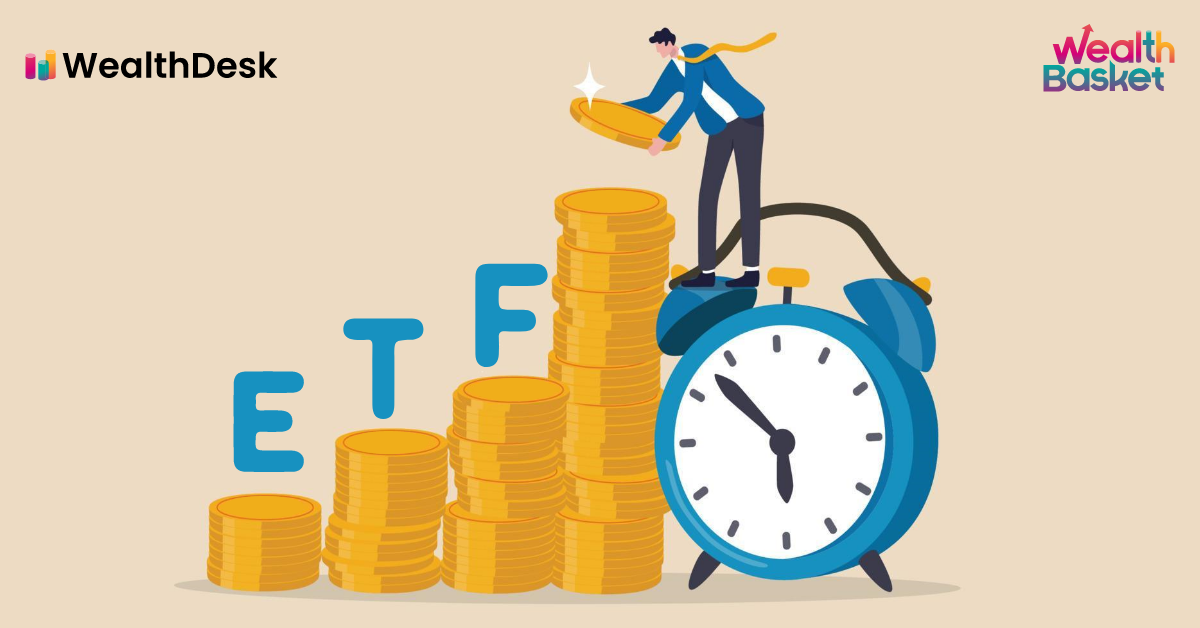As per the SEBI report, Asset Under Management (AUM) of the Exchange Traded Funds (ETF) in India skyrocketed from ₹1.54 trillion at the beginning of 2021 to ₹2.9 trillion by 2021. Although ETF investments have seen a massive spike in recent years, it is not a good practice to invest in ETFs just because the majority of the investors are investing in them without knowing them in detail.
In this article, we will attempt to understand why to invest in ETFs, what ETFs are, along with their types, tax-free ETF dividends, tax-saving ETFs, and fees charged.
What Are Exchange Traded Funds in India?
ETF Funds India (ETF) are investment portfolios like mutual funds that track an index like Nifty 50 or Sensex Next 50. ETFs do not precisely duplicate the performance, but they create a portfolio of shares included in the index they are tracking.
Types of ETF in India
ETFs are open-ended marketable funds bought and sold by their market price, which is why they can have an unlimited number of investors. Here is a brief study of the types of ETFs in India:
Bond Exchange Traded Funds in India
These ETFs track the prices of the government, corporate, state, or municipal bonds and provide regular returns to investors depending on their performance.
Stock ETF Funds, India
Stock or equity ETFs are a pool of stocks that track indexes of a sector, maximize exposure to that sector, and are available at lower fees than the actively managed mutual funds.
Commodity Exchange Traded Funds
The investment of these ETF Funds is in commodities like crude oil or gold and offers a diverse portfolio to reduce losses during a market slump.
Currency ETF
The investment of these are in single or pairs of currency comprising domestic and foreign legal tender and work as a hedge to avoid forex downturns.
Inverse ETFs
These ETFs gain from stock volatility. ETF issuers anticipate a downturn in stocks and sell them before the price falls, only to repurchase them when affordable. In other words, it refers to short-selling the ETFs now to buy them at a lower price later when the market is anticipated to fall in the future.
Why Invest in ETF?
You can consider investing in ETFs not only to diversify your portfolio but also to use your savings to grow with these cost-effective instruments. Let’s looks at the benefits of investing in the ETFs:
- They are cheaper than mutual funds because the expense ratio for ETFs can be as low as 0.20% per annum.
- Since they track the index of a particular sector, or a market, or a commodity index, they offer greater diversification.
- ETF investment can give you simplified asset allocation by offering better exposure to the equity markets.
- They offer greater liquidity since they are traded on the stock exchange. Just like stocks, you can buy or sell them whenever you want.
- ETFs are more tax-efficient than mutual funds because they generate smaller turnover (arising due to frequent buying and selling), resulting in smaller capital gains than the actively managed funds.
Risks of Investing in ETFs
- ETFs carry the risk of stock market volatility. As the prices of various underlying stocks fluctuate, ETF portfolios also get affected due to those fluctuations to a certain extent.
- ETFs may not precisely replicate the index it is tracking, and the differences are called tracking errors. More tracking errors indicate that your ETF may not generate returns as generated by the index it is tracking.
- Since they track the entire index, you have to invest in all the companies existent in the index, and hence, you can not have control over selecting which company you want to invest your money in.
- ETFs are also exposed to the underlying asset risks. For example, if you invest in a bond ETF, your ETF will also be exposed to credit and interest risks.
Tax-free ETF dividends
Until the financial year 2020-21, the ETF dividends were tax-free in the hands of the taxpayers. After the abolishment of the Dividend Distribution Tax (DDT), the ETF issuers transfer the dividend amount to the investor’s annual income. Hence, the dividends are taxed in the hands of the investors depending on their tax slab.
ETF – Tax Benefits
The Indian tax policy towards ETFs differs according to the ETF category, i.e., bond ETF, equity ETF, or commodity ETF. However, the Indian Government encourages investments in Central Public Sector Entreprises (CPSE) ETFs to receive ETF tax benefits by allowing a deduction of up to ₹150,000 under section 80C of the Income Tax Act.
How to Invest in ETF Funds India?
It is currently easy to invest in Exchange Traded Funds in India because traders can choose from the numerous available platforms depending on the services and products they offer.
At WealthDesk, you can pick ETF baskets already created by industry professionals. After extensive research on ETF and stock, the SEBI-approved research professionals carefully curate the WealthBaskets.
You can invest in WealthBasket consisting of ETFs using the below procedure:
- Select a WealthBasket reflecting an investment strategy or theme.
- Fill in the required details.
- Read and agree to the terms.
- Pay the subscription fees mentioned.
-
You can now invest in multiple WealthBaskets in just
one tap.
Conclusion
ETFs have advanced tremendously from their emergence eighteen years ago. The industry’s growth and maturity are primarily because of the market and regulation tailwinds. However, certain factors like liquidity, market framework, and investor awareness restrict its growth beyond the nascent stage.
Nevertheless, you can expect a potential shift in ETF investment in India because of the low exchange-traded funds’ fees, transparency, and increased ETF awareness in India.
FAQs
Although ETFs are low-risk, low-cost investments, people hesitate to invest because of the special taxation consideration, the type of ETF, and its liquidity issues.
A noticeable difference between ETFs and Mutual Funds is that the investors can trade ETFs on the stock exchange like shares, whereas they can buy units of the mutual funds only from the fund managers or AMCs.
ETFs are well-diversified as they track a particular index which includes multiple stocks of various companies. At the same time, stock investing involves an extensive research of the different stocks and concentrated risk compared to ETFs. An investor must evaluate the choice of investment depending on their risk appetite.


















